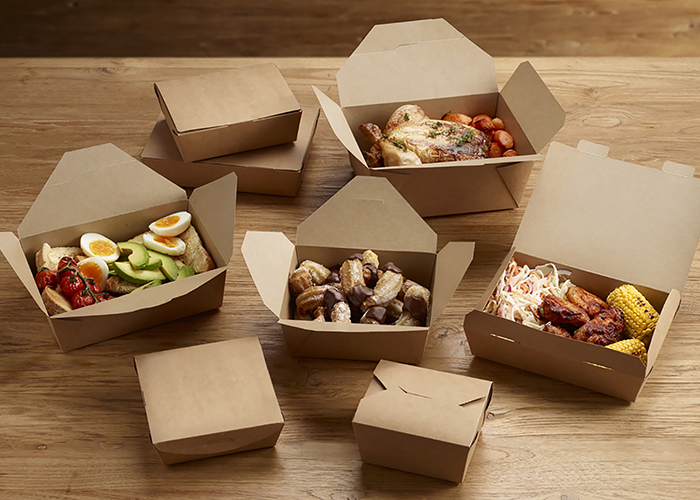Willesden-based third generation family firm Amipak, has invested in the future, installing new equipment to make environmentally-friendly takeaway food packaging.
Amipak has invested over £200,000 in a new high performance Heiber+Schröder tray forming machine, to increase production capacity for its growing range of carton packaging products for the food-to-go, retail and out-of-home sectors.
The new Heiber+Schröder CE 1560 tray former, is now fully operational at Amipak’s Willesden site, and is the latest investment in technology and modernisation of its production facilities totalling over £1.75m.
“Investments like this are part of our long-term plan and a statement of intent to grow our business. We aim to meet increased demand for our sustainable cartonboard product range, with a flexible and customer focused approach,” explains Amipak Director of Communications and Sustainability, Daniel Schwitzer. “The trays we produce on this new machine are easy for both operators and consumers to use. They are often made from easily recyclable material and are pulpable or compostable in an industrial facility, which fits well with current consumer expectations.”
The new tray forming machine can create up to 36,000 perfectly formed trays per hour and features the latest technology for faster running speeds, quick make-readies and operator ease of use.
“Fully operational from mid-November 2020, the new machine enables us to deliver the shorter lead times, with increased capacity, reliability and flexibility required to meet the fast-changing demands of this sector,” explains Daniel Schwitzer. “It is used to produce food packaging such as our sustainable brown leakproof range, and in addition to reducing waste, creates the opportunity for Amipak to convert more products.
“The tray production machine will also be used for the creation of a foodservice packaging range, which utilises a new material. Trials are underway and we look forward to announcing the introduction of this new product development in early 2021.”
This latest round of investments from Amipak over the past two years has included a Brausse Forza 1100 C6 folding and gluing machine, a Heiber + Schroeder Triple stream nested gluer, a twin stream window patcher and Kempner shrink wrapper. In addition, refurbishment and modernisation at Amipak’s Willesden site has allowed for an additional 1,000 pallet spaces and the addition of a dock leveller has greatly increased efficiencies in the logistics department – cutting some offloading times by 75%.
“Installing new machines has increased our capacity in some areas by around 30% as we prepare to respond to the rapidly growing demands of the food-to-go category,” concludes Daniel Schwitzer. “We are proud that we have Forest Stewardship Council® (FSC®) Chain-of-Custody certification and that we manufacture the majority of our products here in the UK, therefore lowering our carbon footprint as well as that of our customers.
“These are investments for the future of Amipak, enabling the business to increase stock holding while building on our consistent reputation for flexibility in serving our customers.”
